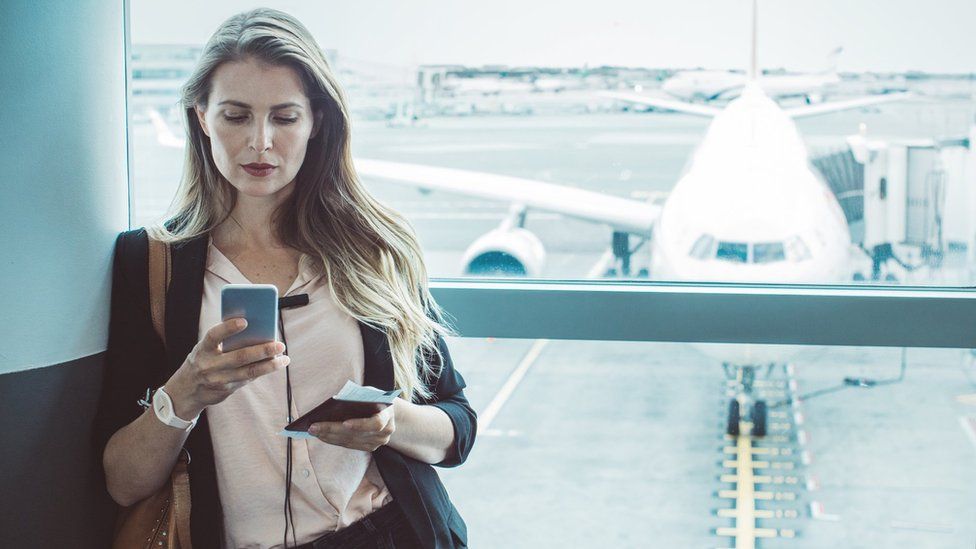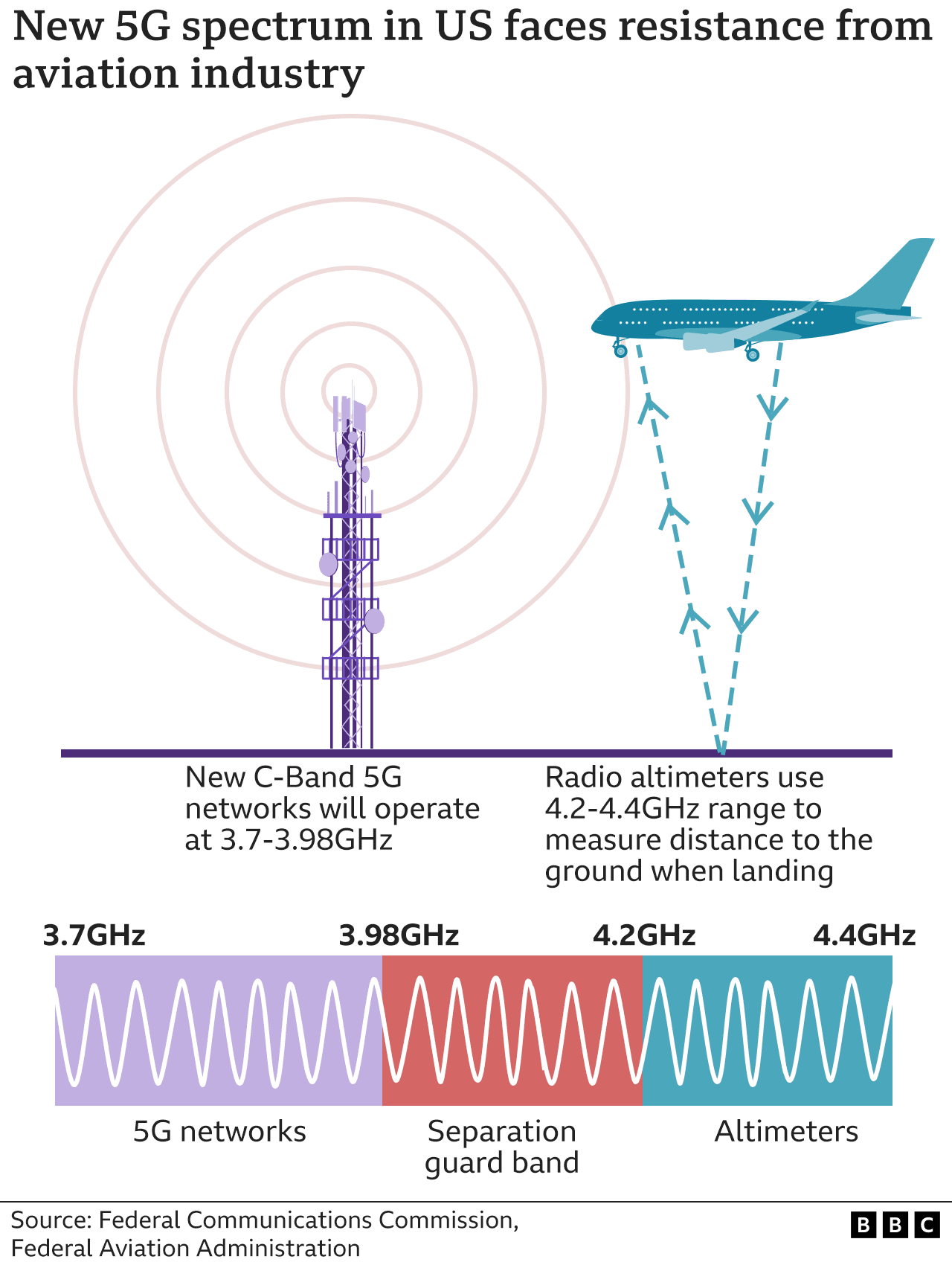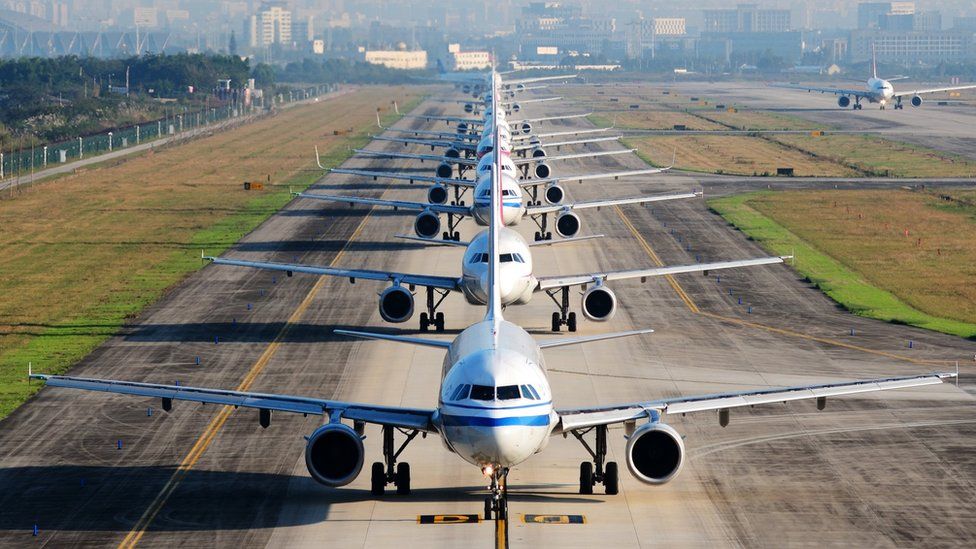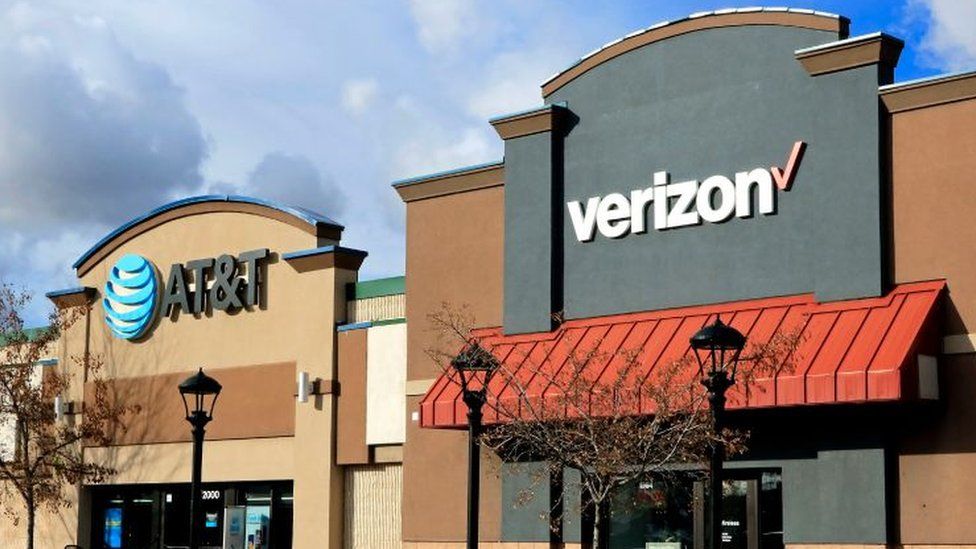By Theo Leggett
Business correspondent, BBC News
 Image source, Getty Images
Image source, Getty ImagesTen leading US airlines are warning that the imminent rollout of 5G services could be disastrous.
They say the new technology could cause thousands of flights to be delayed, and risks leaving large parts of the US aircraft fleet grounded indefinitely.
How could 5G disrupt US aviation?
5G relies on radio signals. In the US, the radio frequencies being used for 5G are in part of the spectrum known as C-Band.
These frequencies are close to the ones used by radio altimeters on aeroplanes, which measure the height of the aircraft above the ground, but also provide data for safety and navigation systems.
The concern is that interference from 5G transmissions could stop these instruments from working properly, and cause safety problems, particularly when aircraft are coming in to land.
How serious is the risk to planes?
It is potentially very serious.
In late 2020, the RTCA – a US organisation which produces technical guidance on aviation issues – published a report on the subject.
It said there was “potential for broad impacts to aviation operations in the United States, including the possibility of catastrophic failures leading to multiple fatalities, in the absence of appropriate mitigations”.
More recently, the US aviation regulator, the FAA, warned that 5G interference could lead to problems with a number of different systems aboard Boeing’s 787 Dreamliner.
These could make it difficult to slow the plane down on landing, causing it to veer off the runway.

How will flying be kept safe?
Planes won’t be allowed to use radio altimeters in circumstances where there could be a risk of serious interference.
But that will restrict the ability of some aircraft to land, for example, in poor visibility.
Airlines for America, which represents 10 major carriers, has warned that this could lead to more than 1,000 flights being delayed or cancelled in bad weather and mean at times “the vast majority of the travelling and shipping public will essentially be grounded”.
It has also suggested a large part of the US aircraft fleet will be “deemed unusable” because of restrictions on their operation.
 Image source, Getty Images
Image source, Getty ImagesDo other countries using 5G share these concerns?
Not to the same degree. That’s because the way in which 5G is being rolled out varies from country to country.
In the EU, for example, networks operate at lower frequencies than those which US providers are planning to use – reducing the risk of interference. 5G masts can also operate at lower power.
Nevertheless, some countries have taken further steps to reduce possible risks.
In France, there are so-called “buffer zones” around airports where 5G signals are restricted, while antennas have to be tilted downwards to prevent potential interference.
What else are the US authorities doing in response?
Regulators in the US have already taken a number of steps.
The FAA has established temporary buffer zones around 50 airports, where 5G providers will limit their activities. But these are much smaller than the zones already being used in France, and US transmitters will operate at significantly higher power levels.
It has also begun identifying which altimeters can be used safely in areas where 5G has been deployed – and those which are not reliable enough and will need to be replaced.
It has also identified airports where GPS systems can be used to guide approaching aircraft rather than radio altimeters.
But the airlines insist this isn’t enough: they claim the 5G network should not be activated at all within two miles of affected airports.
What have the 5G firms said?
Verizon and AT&T have already delayed the 5G rollout twice, and have agreed to the temporary buffer zones mentioned above.
 Image source, Getty Images
Image source, Getty ImagesThey also pointed out that 5G has already been implemented in some 40 countries.
Last month the US wireless industry body CTIA accused the aviation industry of “scaremongering”, and warned that delaying the introduction of 5G would cause real economic harm.
What’s the situation in the UK?
UK regulators and airlines do not seem unduly worried.
In a safety notice published in December, the Civil Aviation Authority (CAA) said that “there have been no confirmed instances where 5G interference has resulted in aircraft system malfunction or unexpected behaviour”.
It also stressed that “different national mobile telecommunication strategies may mean that some [countries] have a higher threat exposure than others”.
The UK regulator says it plans to work internationally to gather further data on the issue.


